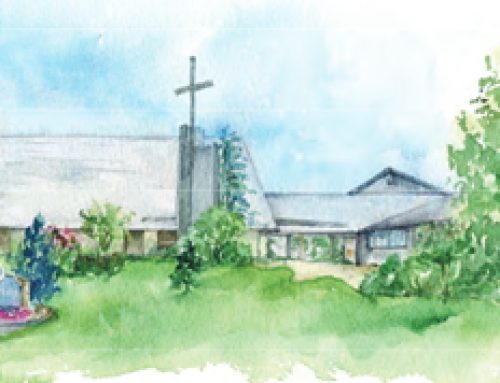FROM THE PASTOR’S DESK
Dear Parishioners,
John the Baptist is the major character of today’s gospel, and we should not fail to notice the bizarre way he responds to the question that is posed to him. When the priests and Levites from Jerusalem ask him, “Who are you,” John could have responded, “I am John, son of Zachariah,” or, “I am a preacher.” But that is not his answer. He says, “I am not the Christ.” When people asked John who he is, he responds by saying who he is not. As strange as this is, it is consistent with the picture we have of John in the New Testament. John’s constant purpose is not to point to himself but to prepare the way of the Lord. John is not interested in saying who he is but rather who Christ is, adding that he, John, is not the Christ. John says this even clearer a little later in the gospel when he tells his disciples, “He (Jesus) must increase, and I must decrease.” John’s purpose, then, is to become smaller, to take up less and less room so that there is more room for Jesus.
Now, it is important for us to realize that John does not want to become smaller because he has low self-esteem. John does not dismiss himself or his message. He considers his mission important. That is why he stands crying out in the wilderness. But, despite the importance of his calling, John chooses to be less so that Jesus can be more.
Now, this attitude on the part of John poses a question to us: Would our lives become richer, would we be happier if, at times, we chose to be smaller, if we chose to take up less room? You don’t need to be married long before you figure out that in every relationship there are certain hot button issues. When these arise, it takes a great deal of effort to avoid a stand-off. These issues can concern the use of money, the raising of children, or the way to deal with in-laws. John the Baptist suggests that when these hot buttons emerge, we may choose to become smaller, to step back from what we demand or what we expect. Doing this does not mean that our position is wrong, or the position of our spouse is correct. It simply means that by choosing to be less, there may be more room to live.
We might be pushing a son or daughter to use their talents, to work harder to study more. We do this because we love our children. We want them to be successful and to become all that they can be. But our efforts at times are ignored or lead to confrontation. John the Baptist wonders what would happen if we choose to become smaller, to ease up on some of our expectations. We might do this, not because what we are asking is misguided, but because if we took up less room, there might be more opportunity for some new thing to emerge in our child.
The customs of this Christmas season are important to all of us. We use gifts, food, and social gatherings to express who we are and who we love. John the Baptist suggests that perhaps we let our holiday traditions grow smaller, that we choose to have less gifts, fewer parties, and smaller traditions. We may choose to do this not because any of these things are wrong, but because if they took up less space, there might be more room for us to reach out to those who struggle, those who have less than we do, those who do not belong to our family and friends.
John the Baptist comes to us in today’s gospel, and he does not ask us to let go of our goals or what we think is important. But he does remind us that sometimes we can take a step forward by taking a step back. There are times when we can become more by choosing to be less. There are opportunities where we can find happiness by becoming a bit smaller. Now, in a world that is constantly pushing for more and more, John remains a voice crying in the wilderness. But the promise of his message also remains. For when we choose to become smaller, we, like John, can be making room for Jesus.
Peace,
Fr. Monteleone
To read the complete bulletin click here



